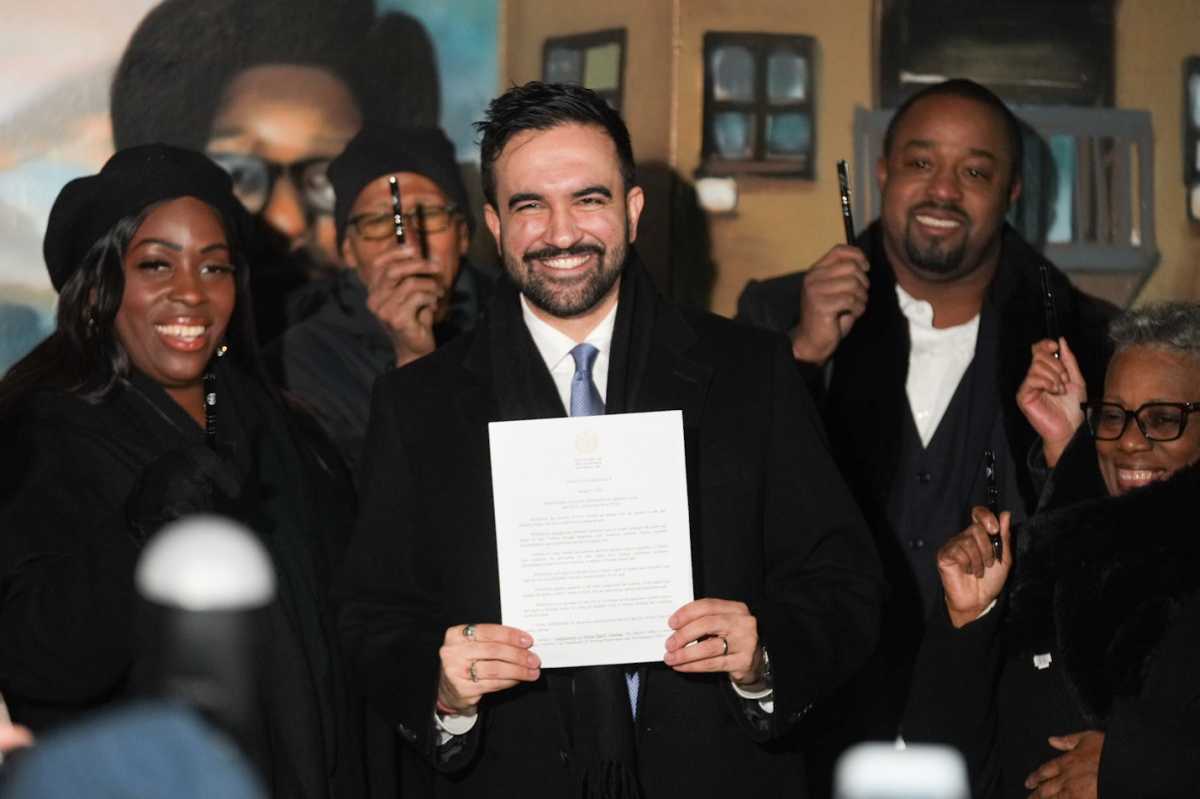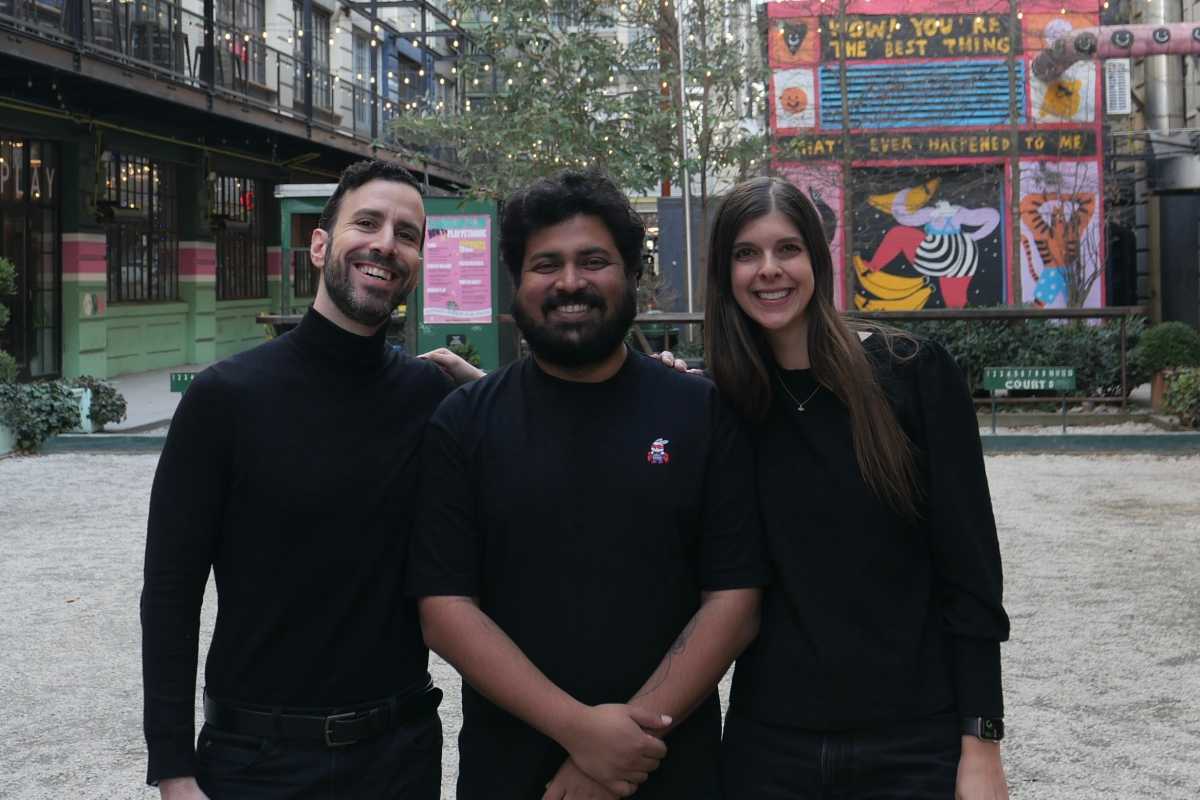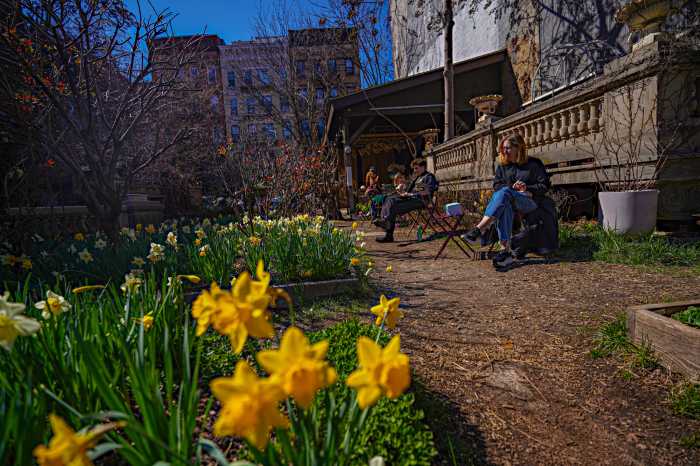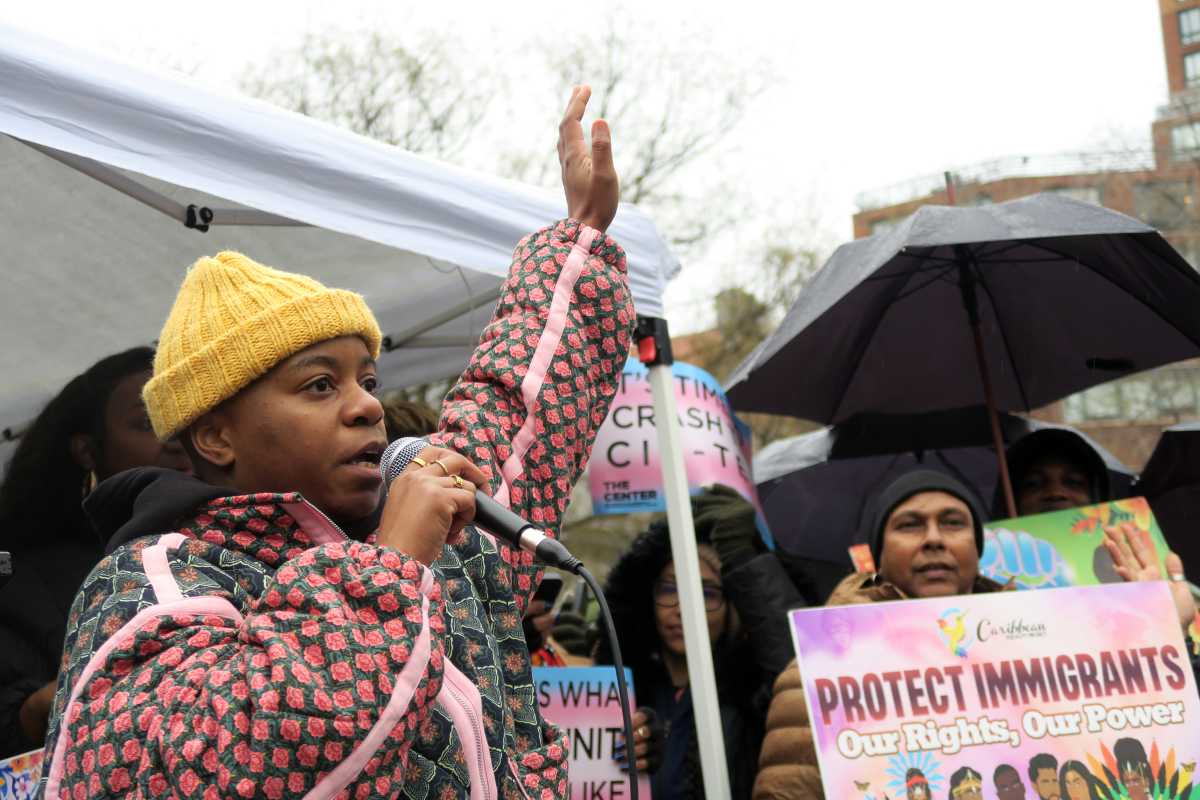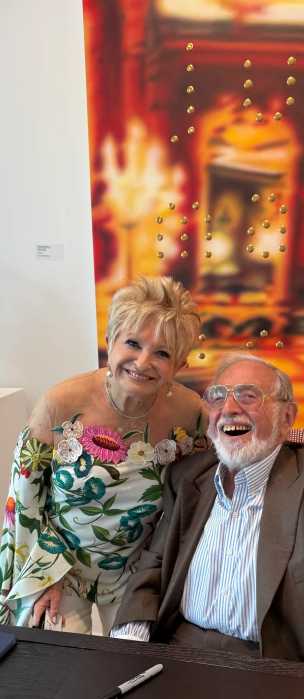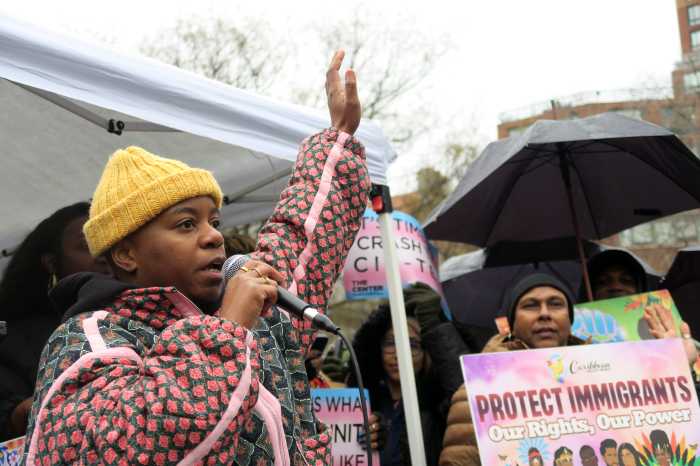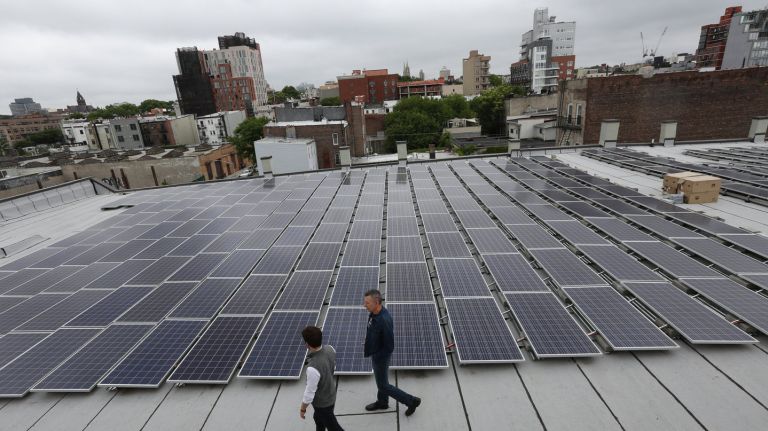
A community solar farm in Gowanus may help illuminate the industry’s future in the city by highlighting a new funding stream for landlords, its partners said.
When Con Edison formally approves the system in the next month or two, the 100-kilowatt Carroll Street Community Solar Farm will generate about 130,000 kilowatt-hours a year. That’s enough to power 23 households, according to CleanChoice Energy, which manages customer subscription and billing for the farm.
Although the scope may seem small, the solar plant, located at 505 Carroll St., is on track to be one of the city’s first community farms — where the energy is not limited to the immediate building or vicinity, but can be shared widely by tapping into ConEd’s transmission wires and infrastructure.
Success with the Carroll Street farm should convince more landlords to lease their roofs to solar firms, according to Peter Davidson, managing director at Gotham Community Solar, the Gowanus project’s developer.

“We’ve had a fair amount of interest, but we’ve really not been pushing it hard,” Davidson said of Gotham Community Solar’s conversations with property owners. “Landlords in New York are a pretty cynical group, so we want to make sure we have something that’s really working, generating power, which we’re selling to customers.”
Beyond recent regulatory changes that allow solar farms to sell to a broader customer base and access ConEd’s system, new city tax benefits are propelling a few dozen community solar projects, Davidson said.
Currently, two completed farms are approved to use ConEd’s system: a 3.64-kilowatt project in the Park Slope and Gowanus area and an 86.1-kilowatt project in downtown Manhattan, according to a Con Ed document CleanChoice Energy shared with amNewYork in early June.
Davidson said his firm is working on solar farms in Sunset Park and on Pitkin Avenue, which it aims to formally launch by the end of 2018.
He said Gotham Community Solar has agreed not to share the specific rents it has agreed to pay for its three projects’ roof spaces, but noted the company signed a 20-year lease for the Carroll Street farm. That agreement also allows the building owner to benefit from a four-year city property tax credit, Davidson said.
“For the building owners, it’s a new source of revenue,” said Kate Colarulli, a spokeswoman for CleanChoice Energy. “This new model both opened it up to all of those people who don’t own their own roofs or don’t own a roof that’s situated in the right place — like maybe it’s a shaded roof.”
The 23 subscribers, which committed to at least three years with the solar farm, can be assured the solar they are paying for is enough to cover their home’s typical energy consumption, according to Colarulli. (The solar power in question is not specifically routed to their homes, she said.)
Subscribers will get a nominal bill from ConEd — for use of its infrastructure and taxes — and a bill from CleanChoice Energy, Davidson said. The CleanChoice bill will be based on historical energy usage and should mirror what they were paying at ConEd, according to Davidson.
“This farm is now officially full,” Colarulli said. “We sold out in a couple of weeks.”
Despite that demand, Davidson said Gotham Community Solar is unsure precisely how profitable the Carroll Street farm will be. The firm spent $450,000 on the farm, but Davidson believes about $100,00 of this comes from legal and other services it may need for future projects.
“It’s free in generating it, but you have to pay a lot of money upfront,” Davidson said, explaining that Gotham Community Solar will need to recoup the initial investment and pay rent bills. “We’re basically going to be selling it at the same price, if not lower, than ConEd. So we’re not really going to know how we’re going to do unless we can forecast exactly where utility prices will be in 10 years or 15 years.”



